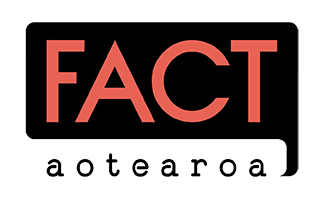
Imported election fraud claims just don’t stack up in NZ
The differences between New Zealand's elections and the United States are vast. Some people in New Zealand are recycling America's false "stolen election" conspiracy theories here when it just doesn't make sense.
Courts have found that big claims about fraud in the last US presidential election were baseless. Sore loser stuff. But beyond that, New Zealand elections work very, very differently, so no matter what you think about what happened in the US, it’s not going down like that here.
Our elections are rigged! The globalists stole the US election from Donald Trump, and they’re going to do the same thing here!
- New Zealand elections don’t use voting machines
- In New Zealand elections votes are counted and re-counted by hand
- New Zealand elections are run by a single non-partisan government agency
Claims of electoral fraud are sadly becoming a staple of US political discourse. The claims generally assume one or more of these forms:
- Voting machines are insecure and being hacked
- Voting machines are secure but manipulated by corrupt officials
- Election workers manipulate the count
- Votes are cast in the name of dead people
- Postal ballots are manipulated
US political discourse travels here and so does US misinformation. It’s not surprising therefore that some local conspiracy theorists are recycling US election fraud claims. But while we applaud recycling in principle, our local conspiracy theorists are not taking care to make sure their reused claims make sense in the New Zealand environment.
(Before we go further it’s worth noting that the baseless claims made about Dominion and Smartmatic voting systems have resulted in hefty defamation suits…)
Unlike the US, New Zealand does not use voting machines in any way. Claims that NZ elections can be influenced with voting machines, whether from Dominion or another manufacturer, fall apart when you realise that here we only use paper ballots. (Exception for overseas votes, which are made by marking up a PDF or scanning a printed out paper, but still inspected visually by a returning officer).
In the US, election officials can be elected themselves, or appointed by partisan elected representatives. This might give rise to concern that they could favour their own party (although seemingly in states like Georgia this does not seem to have been the case). But in New Zealand, the Electoral Commission is a non-partisan agency set up as an independent Crown Entity with a board appointed by the governor-general. Board members are typically appointed for 5 years and their terms don’t overlap with Parliament’s. Every election in New Zealand the Electoral Commission puts together a large temporary workforce to manage enrolments and conduct the election itself.
US elections require totals from many different local processes to be added together in ways that also can be local to county or state level. This means their counting processes are very complex and auditing is difficult, over and above the challenges that come just from sheer size and scale. In New Zealand however, a much smaller country, our elections are run by the Electoral Commission alone in a consistent and transparent way. It’s easy to understand and the paper system provides safeguards against double voting and other kinds of fraud.
Likewise, New Zealand’s small size and relatively unified government means it’s not feasible to swing an election with dead voters: the Department of Internal Affairs notifies the Electoral Commission of deaths, and these are matched with voter rolls.
Some US states allow postal ballots, and as a result, claims have been made that ballots are collected up and mass-delivered to swing results (although exactly how is not made clear). These claims have been solidly debunked, but beyond that: New Zealand does not use postal ballots in general elections. It’s not going to happen here, because it can’t happen
You might be detecting a theme here. Two very different countries run elections in very different ways.
In the US context, it’s not hard to see why these claims have prima facie value. American elections are run through a myriad of different systems and processes at a very local level. Historically, some local elections have suffered from fraud. And reputable researchers have concluded that voting machines may be vulnerable to attack. So there is a grain of truth that means claims of fraud do need to be considered.
However, because we do things in a much simpler and more transparent way here, people who think they can just replay the same stories in New Zealand need to think again.
- NZ voting machine claim pushes the wrong buttons, AAP, Nik Dirga: https://www.aap.com.au/factcheck/nz-voting-machine-claim-pushes-the-wrong-buttons/
- Dominion is not done fighting 2020 election lies. A look at its other cases, The Guardian, Sam Levine: https://www.theguardian.com/us-news/2023/may/04/dominion-fox-lawsuit-newsmax-oan-news
- FACT FOCUS: Gaping holes in the claim of 2K ballot ‘mules’, Associated Press, Ali Swenson: https://apnews.com/article/2022-midterm-elections-covid-technology-health-arizona-e1b49d2311bf900f44fa5c6dac406762
Letters & resources



Prebunking election misinformation













